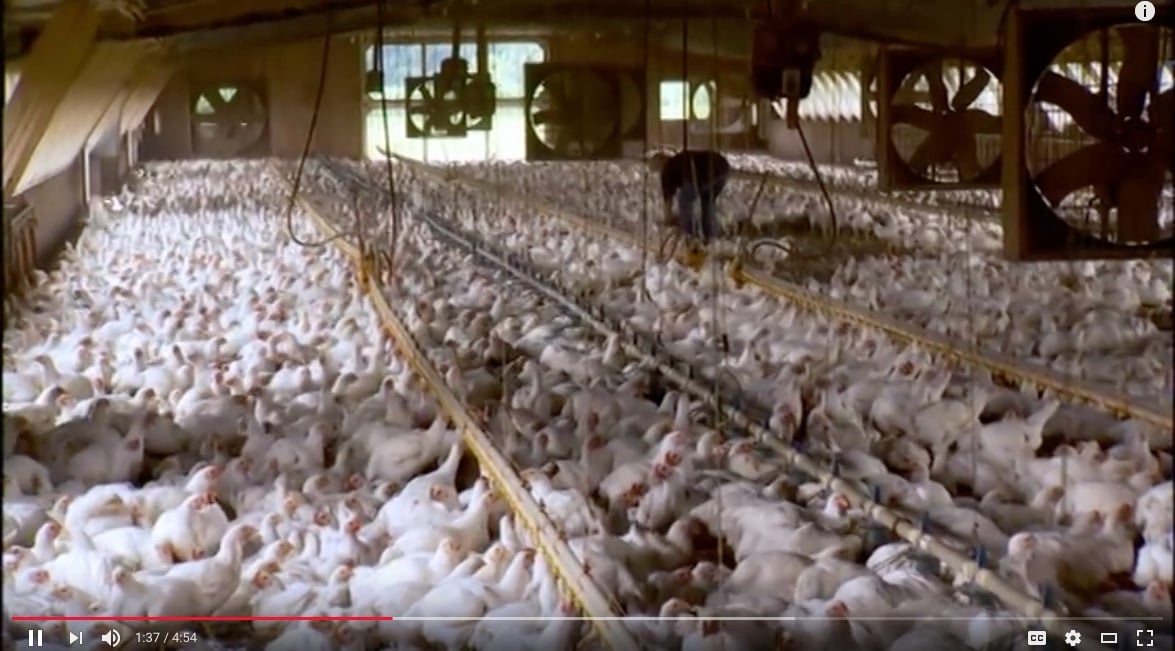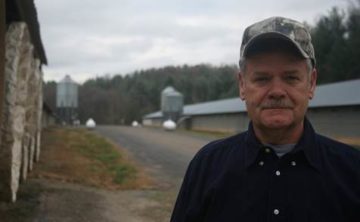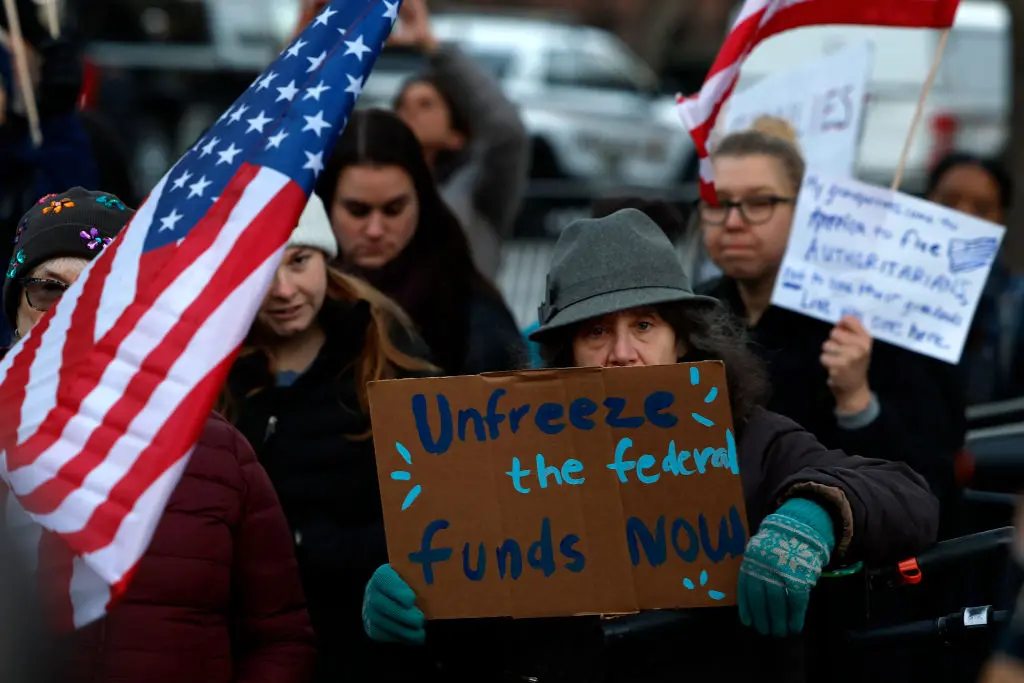
USDA Rolls Back ‘Fair Practice’ Rule That Would’ve Protected Texas Chicken Farmers
Texas is the sixth biggest producer of broiler chickens in the nation, accounting for $2.6 billion in sales.

They get lured in by the promise of an easy, steady paycheck. Just raise some chickens, keep them healthy, and the company — Tyson, Sanderson Farms or some other industrial poultry processor — will take care of the rest, farmers are told.
They sign an exclusive contract and take out a loan to build several 24,000-square-foot chicken houses on their land. At first, everything’s fine. But eventually the growers, as they’re known in the industry, run into trouble, said Mike Weaver, a Pilgrim’s Pride contract farmer in West Virginia.
Weaver, who is also the president of the Organization for Competitive Markets, an antitrust think tank in Nebraska, told the Observer that sometimes the companies demand expensive improvements be made to the chicken houses, such as new heating or feeding systems that growers can’t afford. Sometimes entire flocks of up to 100,000 birds inexplicably die, he said. Many growers see their pay slashed and their expenses skyrocket. It gets so bad that some contractors have to take a second or third job just to make loan payments on the chicken houses. Some declare bankruptcy; at least one committed suicide.
A rare federal lawsuit allowed to go forward in Oklahoma this year bears out allegations made by Weaver and other farmers.

“Your choices are to lose your farm or raise their chickens,” Weaver said. “The bank’s beating your door and you’re gonna have to declare bankruptcy or something else drastic. Sometimes [farmers] think it’s hopeless.” He said farmers are frequently taken advantage of, but due to nondisclosure agreements in the contracts signed by growers, many outside of the industry are unaware of the abusive practices.
About 800 of these contract farmers work in Texas, the nation’s sixth largest poultry producer. The three major players in the industrial chicken game — Tyson, Sanderson Farms and Pilgrim’s Pride — all have operations in Texas, mostly in the eastern part of the state. All three companies have been accused of mistreating farmers by employing tactics that push contractors into a cycle of crippling debt and bankruptcy. Now, due to last month’s rollback of a U.S. Department of Agriculture (USDA) proposed rule meant to protect farmers, they’ve lost what little hope they had to sue companies who take advantage of them.
Experts say the USDA’s decision to kill the Farmer Fair Practice rule, an Obama-era protection for contract growers that was slated to take effect this month, could indicate that the president won’t stand up for the farmers who overwhelmingly voted him into office.
Wes Sims, president of the Texas Farmers Union, a century-old rural advocacy group based in Sweetwater, told the Observer that he’s disappointed but not surprised by the rule’s withdrawal. And with Trump’s administration siding with agribusiness interests instead of farmers, “How do you stop them?” he said.
While the Texas Farm Bureau supported added protections for contract growers, the National Chicken Council and other meat processing industry groups have hailed the rule’s withdrawal.
Representatives for Tyson, Sanderson Farms and Pilgrim’s Pride did not immediately respond to a request for comment.
Farmers previously have said that meat processors pit them against one another in what’s called a “tournament system.” Those who raise the fattest chickens with the least feed are paid the most, while their competitors split the money that’s left. Farmers can do little to improve their position, since companies control which chicks and feed are sent to them. Enough poor showings in the “tournament” can put a grower out of business for good.
Contracts between farmers and meat processors usually stipulate that farmers must settle disputes through arbitration instead of in court. Theoretically, farmers can still file a lawsuit against the companies, but court rulings have held that for a suit to even go forward, plaintiffs must prove that unfair practices are occurring industry-wide. The Farmer Fair Practice rule, which was initially proposed in 2010 and delayed several times before being nixed on October 18, would have eased that requirement.
“There’s no other industry that has to meet that standard,” said National Farmers Union President Roger Johnson. “If you’ve been harmed, you should have the right to redress.”
In withdrawing the protection, USDA Secretary Sonny Perdue said the rule would have caused “unnecessary and unproductive litigation.” U.S. Representative Mike Conaway, a Midland Republican who chairs the House Agriculture Committee, echoed the sentiment. “I appreciate the Trump administration’s dedication to regulatory reform through the rollback of unnecessary and burdensome regulations like these,” Conaway said.
Though some farmers who have quit the industrial chicken raising business have raised the alarm about industry abuses, many active growers are loathe to speak with the press. If they do, they face retribution from processors, including being provided with sickly chicks and bad feed, or having their contract canceled, Sims said.
“The company controls all the inputs. They control everything,” he said. “If they speak up, stand up for themselves, they’re done.”
With the proposed rule withdrawn, a lawsuit being heard in the U.S. District Court of the Eastern District of Oklahoma may be contract farmers’ last hope. In Haff Poultry Inc. v. Tyson Foods Inc., farmers have accused processors of colluding to trade information in an attempt to limit farmers’ compensation. The lawsuit claims companies keep farmers “in a state of indebted servitude, living like modern-day sharecroppers on the ragged edge of bankruptcy.”


